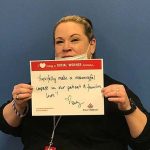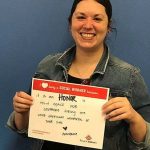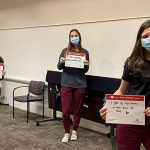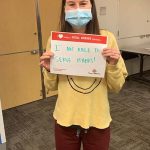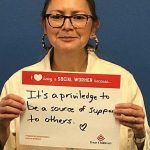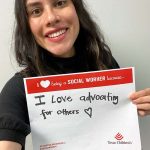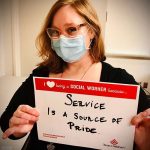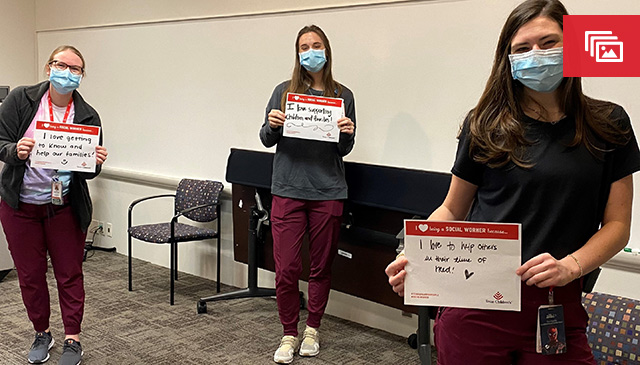
When the National Association of Social Workers settled on a theme for Social Work Month 2021, they picked “Social Workers Are Essential” as a reminder that this helping profession affects positive change for entire communities.
At Texas Children’s, social workers make a difference every day – overcoming any obstacles that stand in the way of our patients and their families achieving healthy, fully functional lives.
As we enter the final days of Social Work Month, we look at how our social workers rise above challenges to meet people where they are, and get them where they want to be.
Committed to care through every circumstance
Medical social worker Becky Butler has long known that to truly help our patients and their families, she has to understand their stories. So when she met “Mary,” an eating-disorder patient expressing suicidal thoughts, she didn’t hesitate to spend nearly three hours actively listening to the young woman share her strengths and struggles.
A college senior who had aged out of foster care, Mary had spent years in and out of homelessness. With nowhere left to turn, she’d started to consider ending her life.
“I was devastated,” said Butler, who works in the Diabetes and Endocrine Care Center. “This girl has too much good in her and so much potential. I knew I could help.”
Determined to ensure that Mary wouldn’t face her hardships alone, Butler devised creative ways to offer support. When Mary returned the next day, she received gift cards to assist with securing housing and covering her basic needs. Mary was overwhelmed that people had come together to provide resources just for her – and Butler wasn’t done yet.
After tapping into her professional network, Butler heard of a job opening for a foster care youth to mentor other youth. The position came with a 2-year contract and $36,000 annual salary, and Butler knew Mary would be a great fit. With a good job, her own place, full-time enrollment in college and a team to help treat her eating disorder, Mary is now on her way to success.
For Butler, being a Texas Children’s social worker is about fully committing herself to getting the job done, no matter the circumstance – whether providing a refrigerator to a family with no safe place to keep their child’s insulin, or advocating for the most vulnerable children we serve.
“That’s my job: getting kids on the paths they want to be on,” she said.
Communicating compassion amid a pandemic
One of our social workers’ most significant responsibilities is providing a level of empathy and support that can’t be found elsewhere. Then came COVID-19 and the realization that their physical presence – so often a balm for emotional wounds – could be a dangerous intervention.
“Many of us had to reimagine our mechanisms of support to continue offering our very best to the patients and families we care for so much,” said Claire Crawford, a social worker for Palliative Care Services.
Where social workers had once been a fixture at the bedside, transitioning to a work-from-home schedule meant adapting to a new reality. In-person check-ins became phone calls, emails and telehealth consults. Visitation restrictions made social workers stand-in supporters.
In the Pediatric Intensive Care Unit, social worker Kelsey Thibodeaux fielded more requests for emotional support, and spent more time offering therapeutic listening to caregivers stretched to their limits. In Palliative Care, social workers found themselves unable to offer a shoulder to cry on, a hand to soothe a crying baby, or fingers to squeeze when speaking wasn’t possible.
Inspired by fellow social worker Shannon Barnes, Crawford adopted a new language to communicate her compassion: both hands laid one over the other, covering her heart.
“A year later, I have had more moments of helplessness, hopelessness, adaptation and growth than I can count,” Crawford said. “My social work colleagues have shown up physically, virtually – and most important – emotionally to give families the caring presence needed to get through the hardest times of their lives.”


